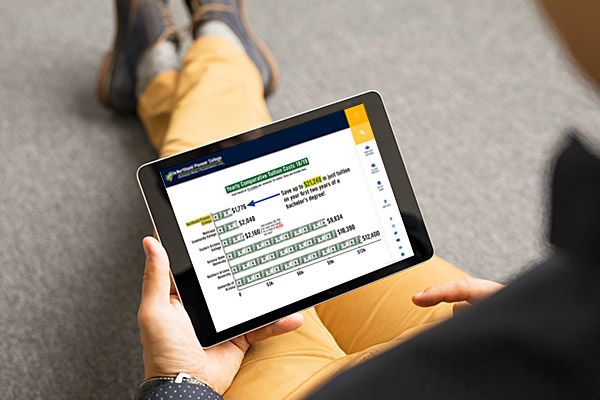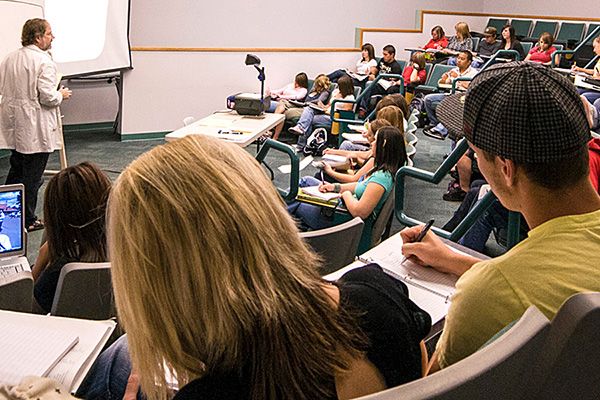|
Section: 2100 – College Operations, General |
Last Review Date: 02/03/2023 |
|
Responsible Area: Leadership Council |
Effective Date: 02/03/2023 |
|
Revision History: 06/2006, 08/06/1995 |
1.0 Scope
All Northland Pioneer College (NPC) employees.
2.0 Purpose
To ensure that NPC procedures are drafted, reviewed, revised, and deleted in accordance with a standardized process that allows for the engagement and collaboration of appropriate NPC stakeholders.
3.0 Definitions
3.1 Policy – Policies are a set of guiding principles as approved by the District Governing Board. Policies are described on the NPC website.
3.2 President’s Cabinet – Those individuals who directly report to the President and oversee divisions at the college.
3.3 Procedure - Procedures describe specific actions to be taken to conform with and/or implement established college policies. Procedures have wide applicability; they impact academic and administrative areas, all employees, or college activities as they relate to students, alumni, the community, and the general public.
3.4 Required Revision - A revision that is required as the result of a change in state statute, federal requirements, or other external factors that NPC is required to implement/follow.
3.5 Revision – Any proposed change to an NPC procedure. Revisions include proposed new procedures that impact or eliminate a current procedure, changes to an existing procedure(s), or deletion of an existing procedure.
3.6 Shared Governance Groups – Include; Leadership Council; Instructional Council; Faculty Association; Classified and Administrative Staff Organization; Student Government Association.
3.7 Standard Operating Procedure (SOP) -SOPs are processes specific to a division or department within the college. SOPs identify the guidelines and steps taken to implement a process within a department and are not subject to full college review.
4.0 Procedure
4.1 Procedure Committee
a) NPC shall maintain a procedure committee as a subcommittee of Leadership Council with membership not to exceed ten (10) members and to include at minimum: a dean; a director from the student services area; an employee from the administrative services area; two (2) Faculty Association Members; and two (2) Classified and Administrative Staff Organization (CASO) members. The Assistant to the President shall be responsible for convening the committee and ensuring this procedure is followed.
b) Ad hoc members may be included in membership to provide input in specific subject areas, or for specific procedures, as needed.
4.2 Primary Duties and Responsibilities of the Committee
a) Create an annual meeting schedule.
b) Create and maintain a review cycle to ensure that every NPC procedure is reviewed, at minimum, once every three years.
c) Create and maintain a template for procedures, a list of general guidelines to assist in the drafting and revision of procedures, and a list of standard definitions.
d) Assign procedures to a person, department, division, or other administrative area that will be responsible for the procedure’s review and upkeep.
e) Review procedure drafts, revisions, and deletions and assign them to one of the categories outlined below.
4.3 Categories of Procedure Revisions
a) Technical Correction: A technical correction does not alter the language or content of the procedure in any meaningful way. Examples of corrective changes include but are not limited to: a typographical error; a name change; a title change; or fixing a broken link.
b) Non-substantive: A non-substantive change to procedures does not substantially alter the overall implementation, may impact only a single department or division, or has minimal impact upon students or the college as a whole. Examples of non-substantive changes include but are not limited to: a change in committee composition; a change in reporting structure; or a change to language that does not substantially alter the overall procedure.
c) Substantive Change: A substantive change alters an established process or procedure at NPC, either in implementation or responsible parties. Substantive changes are modifications, deletions, or additions that significantly impact implementation of the procedure by: expanding the scope, impacting resources, changing controls, and/or adjusting the purpose. Examples include but are not limited to: a completely new procedure; a revision that affects multiple departments or divisions; or alignment to new local or federal legislation.
d) Outside the Purview of this Procedure: A revision or new procedure falls out of the scope of this procedure if it does serve to enact college policy (as articulated by the District Governing Board). For example, this procedure is not intended to govern divisional- or departmental-level standard operating procedures.
4.4 Procedure Development or Revision
a) Any NPC employee or shared governance group may recommend a revision without an official request or assignment. The drafter of a revision will, when possible, work with the appropriate shared governance group(s) or member(s) of the President’s Cabinet appropriate to the procedure under development or revision.
b) Draft revisions must follow the established template and guidelines for NPC procedures. Changes to an established procedure must be clearly indicated, e.g., using version control software or the “Track Changes” option available in many word-processing packages.
c) Draft revisions will be sent to the Assistant to the President who will add the draft for review at the next available meeting of the established Procedure Committee. The drafter of the revision may be invited to the meeting to assist with the review.
d) Should the Procedure Committee determine that a proposed revision will create a conflict with, or require the revision of, other procedures not currently under review, they shall inform the drafter. The drafter shall then be responsible for coordinating with the person, department, division, or other administrative area identified for the review and upkeep of the affected procedure(s).
e) After the Procedure Committee reviews the draft revision, makes any changes it deems appropriate, and identifies the category of the revision (per section 4.3), the Assistant to the President will ensure the established process is followed for each category:
I. Technical corrections are reviewed and finalized by the established Procedure Committee.
II. Non-substantive changes are reviewed by the established Procedure Committee. If the Procedure Committee recommends adopting the revision, the revision will be posted to a web-based collaborative platform, such as SharePoint, and notification made to all employees and Shared Governance groups via email to allow comments to be submitted. The review period shall be at least two (2) weeks, and not more than four (4) weeks and encompass at least one (1) meeting of shared governance groups, excluding the Student Government Association. After the review period, the Procedure Committee, in collaboration with the drafter, may either
- Finalize the revision by incorporating some, all, or none of the feedback or
- recategorize the revision as a Substantive Change.
III. Substantive Changes are reviewed by the established Procedure Committee. If the Procedure Committee recommends adopting the revision, the revision will be posted to a web-based collaborative platform, such as SharePoint, and notification made to all employees and Shared Governance groups via email to allow comments to be submitted. The review period shall encompass at least two (2) meetings of shared governance groups, excluding the Student Government Association. After the comment period, the Procedure Committee will review the feedback and, in collaboration with the drafter, either
- Finalize the revision by incorporating some, all, or none of the feedback into the revision, or
- Incorporate some or all feedback and begin the process for substantive changes again with the new draft
IV. If the Procedure Committee determines that a proposal is outside the purview of this procedure, the drafter will be notified and no further action is required by the Procedure Committee, except as outlined in this procedure.
f) The review period for Required Revisions may be shortened to no less than five days at the discretion of the Procedure Committee. Required Revisions that are deemed Substantive Changes by the Procedure Committee may be submitted to the president after a single round of review. Feedback incorporated into a Required Revision does not need to undergo further review per Section 4.4.e.III.
g) When the Procedure Committee determines procedure revisions have been finalized, the committee then submits the proposed revision to the president.
h) A review by the NPC attorney will be recommended by the procedure committee, as determined on a case-by-case basis, and can be requested by any shared governance group. The final determination on whether attorney review is required will be made by the president.
i) Final approval of the revised procedure shall be made by the president in consultation with the President’s Cabinet.
j) Procedure Committee's recommendations for new or revised procedures made to the president will be reported to Leadership Council on a quarterly basis, to include a summary of Procedures forwarded as well as a description of the comments received and why they were or were not incorporated.
k) Employees will be made aware of all updates via email notification within 24 hours of posting the new or revised procedure to the NPC website.





